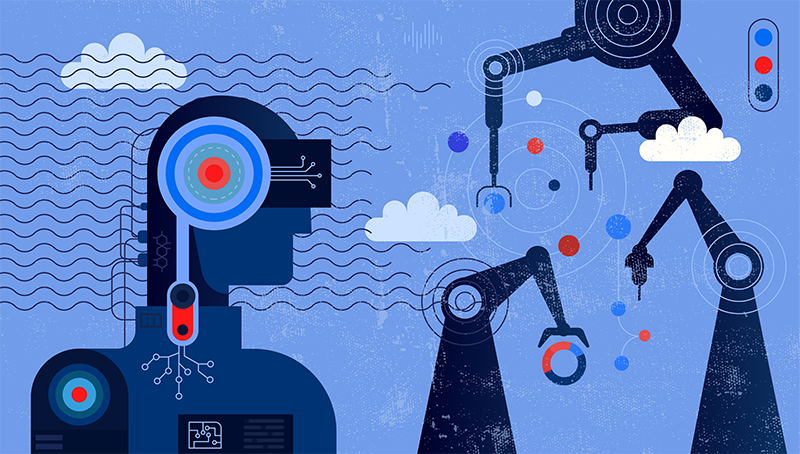The Potential Impact of AI on Flat Glass, Window, and Door Fabricators
7 ways AI can positively impact your business

Artificial intelligence (popularly known as AI) is a ubiquitous topic permeating summer conversations, media stories, memes, and the airwaves. While AI has been a part of our technological landscape for some time (think chatbots, Apple’s Siri, Amazon’s Alexa, etc.), the introduction of ChapGPT to the general public sparked a concerted effort to understand the forthcoming impact of AI on various industries, diverse job roles, and many other facets.
I want to delve into a handful of avenues through which AI can bring about positive transformations in the fabrication of flat glass, windows, and doors. It is important to acknowledge that AI also comes with its downsides, which we’ll explore in a forthcoming blog post (ensuring a comprehensive examination).
1. Leveraging Manufacturing with Automation
Your operations yield a trove of data daily. AI stands poised to empower your team to supervise and enhance production and quality control directly on the shop floor. Noteworthy is the infusion of AI into the burgeoning use of robotic systems in North America, recalibrating the optimization of cutting, shaping, and assembly of IGUs, windows, and doors.
With unparalleled precision, AI diminishes human errors, curtails material waste, and provides meticulous tracking of each lite and the final unit. This, in turn, accelerates delivery times, culminating in elevated customer service ratings.
2. Elevating Customization
Your customers seek products that resonate intimately with their preferences. AI can play a pivotal role in shaping customized designs and offerings.
By scrutinizing your data and relevant industry information, such as news articles, AI has the capability to recommend bespoke, imaginative designs aligned with each customer’s specific requests. This personalized touch heightens the customer experience, paving the way for new business prospects in a market driven by exclusive, top-quality products.
3. AI’s Role in Budgetary Control
As projects expand, the potential for budgetary deviations escalates. Leveraging AI empowers you and your team to anticipate cost overruns by drawing insights from your historical data.
4. Predictive Maintenance
By leveraging AI-enabled predictive maintenance, your team can curtail machinery downtime and enhance equipment efficiency. Through continuous monitoring and early identification of issues, AI serves as a proactive reminder for routine maintenance tasks and also preemptive maintenance for unexpected issues. This strategic integration of AI aids in averting expensive breakdowns and unwarranted disruptions, fostering heightened operational uptime and overall productivity gains.
5. Safety and Risk Mitigation
Prioritizing safety and reducing risks are paramount for business efficacy and employee welfare. Each project involves potential risks across quality, timing, cost, and safety dimensions. While you currently assess these risks informally, AI will eventually enable a methodical analysis and quantification of each risk. AI’s eventual assistance will allow you to evaluate multiple aspects of your business based on historical data, thus facilitating tailored improvements on-site and on the shop floor.
6. Boosting Productivity Amid Labor Shortages
Current versions of AI tackle repetitive tasks (i.e., order checks, order entry, inventory management, billing), enabling your employees to engage in intricate, imaginative tasks. Theis spurs productivity, efficiency, and cost-effectiveness. AI’s scope extends to overseeing shop floor or site robots and optimizing logistics – deliveries, signatures, and instant billing. Such measures trim repetition and amplify employee productivity.
7. Fortifying Data Protection
The surge in cyberattacks, threats, and breaches affects entities of all sizes, as exemplified by Lincoln College’s (former 157-year-old college in Lincoln, Illinois) shutdown due to ransomware in May 2022. Your data is persistently at risk and demands proactive measures. AI advances data management by enhancing quality and security. It vigilantly observes your network for anomalies, detects unauthorizes devices, and scrutinizes traffic patterns, thus bolstering your data protect measures.
These examples encapsulate just a fraction of the multitude of ways AI is currently or will imminently reshape our industry. While AI will truly affect the flat glass, window, and door industry in both foreseen and unforeseen ways, the practical application and true integration of AI within software packages will require some time, effort, and careful planning… but it’s coming.
